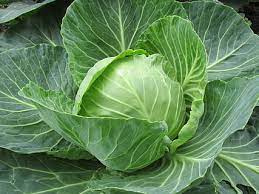
Firstly, introducing Auscrops, a high-tech market vending company bridging farmers and customers together through market vendors. Click here to find out more about Can Cabbage Cause Gas as well fruit and vegetable offers.
Can Cabbage Cause Gas
The question on many minds is whether certain foods, including cabbage, can cause gas. A quick answer is yes. However, the underlying reasons deserve a more comprehensive explanation.
What’s Happening Inside Your Body?
Firstly, it’s essential to grasp why certain foods cause gas. As your body breaks down what you eat, gas is a natural byproduct of this digestion process. Nonetheless, certain foods are more likely to cause gas than others.
The Role of Raffinose
Cabbage, like many vegetables in the cruciferous family, contains a type of sugar known as raffinose. During digestion, the human body struggles to break down raffinose effectively. This is primarily because we lack the enzyme “alpha-galactosidase,” necessary to digest this sugar.
As a result, raffinose passes to the large intestine mostly undigested, where our gut bacteria break it down. In this process, they produce gas, leading to bloating and flatulence.
Fiber: A Contributing Factor
In addition to raffinose, cabbage is high in dietary fiber. Although fiber is beneficial for digestive health, it can also contribute to gas production. Just like raffinose, fiber passes through the small intestine largely undigested, reaching the large intestine where gut bacteria ferment it, producing gas.
Minimizing Gas Production
The question now is, how can you enjoy your cabbage without the unpleasant side effect of excessive gas? One approach is to cook the cabbage thoroughly, as cooking can help break down some of the indigestible sugars, making them easier on your stomach.
In addition, consider incorporating a digestive enzyme supplement containing alpha-galactosidase into your diet. These supplements can help your body break down raffinose, thus reducing gas production.
A Gentle Reminder
Before we conclude, remember that everyone’s body is different. Some individuals may experience more gas than others after eating cabbage. If you find the effects uncomfortable, it might be best to limit your intake or consider alternatives.
To summarize, cabbage can indeed cause gas due to its raffinose and fiber content. However, the health benefits of cabbage often outweigh the temporary discomfort of gas. By modifying the way you prepare and consume cabbage, you can minimize these effects and continue to enjoy this nutrient-rich vegetable. After all, the key to a healthy diet lies in balance and moderation.
Click here to read similar articles.
 Français
Français 











